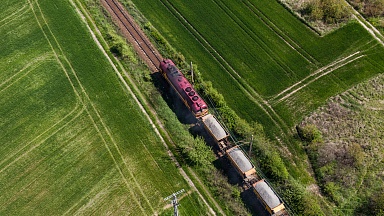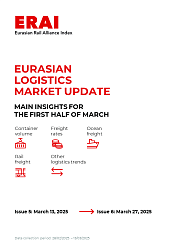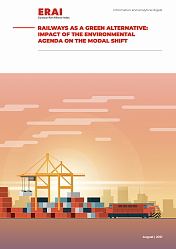With this measure, the Belgian government supports rail freight operators for a total amount of 6.8 million euros, in order to cope with the ongoing pandemic. The support scheme was a proposal of deputy prime minister and mobility minister Georges Gilkinet and was adopted by the council of ministers on Friday.
The measure
Specifically, two measures were adopted to support rail freight operators for the temporary period of 1 January — 30 June 2021. A linear reduction of 0.75 euro per train/km applies to the track access charges for actually performed commercial rail freight traffic. Furthermore, the cancellation costs and reservation costs for train paths are annulled for this period.
The estimated amounts will be corrected based on the amounts actually charged by Infrabel to the operators. If the crisis persists, a new estimate will be made for a possible extension of the measures beyond June 30, 2021, writes minister Gilkinet on his website.
The necessity
In January there was 12 per cent less freight transport in Belgium compared to the previous year. This decline in freight traffic is putting pressure on the activities of various railway companies. However, they are crucial for the mobility of the future, in particular to achieve the government’s target of doubling the volume of rail freight transport by 2030.
«The recent interventions to protect our health and fight the pandemic are having a major impact on our economy and on critical sectors such as rail freight. Today’s federal government decision is an important support for our companies, which daily transport their finished products by rail, and for the railway companies that are reducing the number of trucks on the road through their activities», says Gilkinet.
«As the minister of mobility, I am convinced that rail is central to the post-covid era. I want to prepare for the future by helping the sector to cope with the consequences of the crisis.»
EU tendens
In line with this policy, several European countries have already reduced or waived track access charges for rail freight undertakings. For instance, Germany and the Netherlands have cut them in half, while Austria, Luxembourg and France have waived them completely.
CEO of Lineas Geert Pauwels praised the decision «following the example of other European countries» on his Linkedin page. «This decision is certainly going to advance the modal shift. I look forward to further cooperation of the Belgian Rail Freight Forum with Infrabel and the authorities in Belgium to make rail a top priority for climate, mobility and the economy.»
The Belgian Rail Freight Forum is a union of rail freight operators that are active in Belgium. The Forum has the ambition to double the volumes of freight transport by rail in Belgium and Europe.





